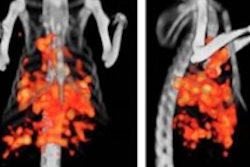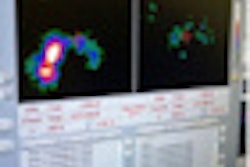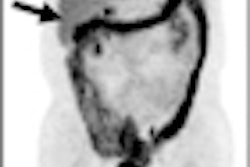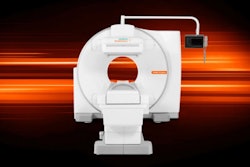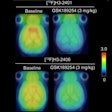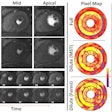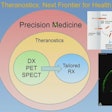Preclinical results support the feasibility and specificity of detecting colon cancer using a new generation of biospecific antibodies called pretargeted immunoPET, according to biopharmaceutical firm Immunomedics.
Results were presented at the American Association for Cancer Research (AACR) annual meeting held this week in Orlando, FL.
Immunomedics said that TF2, a biospecific antibody targeting carcinoembryonic antigens (CEAs) expressed in many human cancers, and a gallium-68 labeled peptide proved to be a highly specific and sensitive imaging method for detecting colon cancer.
Mice with a subcutaneous CEA-positive tumor on the right hind leg and an inflammation in the left thigh muscle were injected with the gallium-68 peptide. The company reported that within one hour, an immunoPET scan revealed a rapid and specific uptake of radioactivity in the tumor, while the inflamed muscle was not visualized.
As a result, high tumor-to-background ratios of radioactivity concentrations were obtained. Efficient tumor uptake of the gallium-68 peptide in intraperitoneal CEA-positive tumor was also observed, producing clear visualization of small abdominal tumors less than 2 mm in size.
The results show that pretargeted immunoPET performs well with short-lived radionuclides, according to the company. It is a highly sensitive procedure for detecting small tumor deposits that is more specific than FDG-PET, Immunomedics said.





